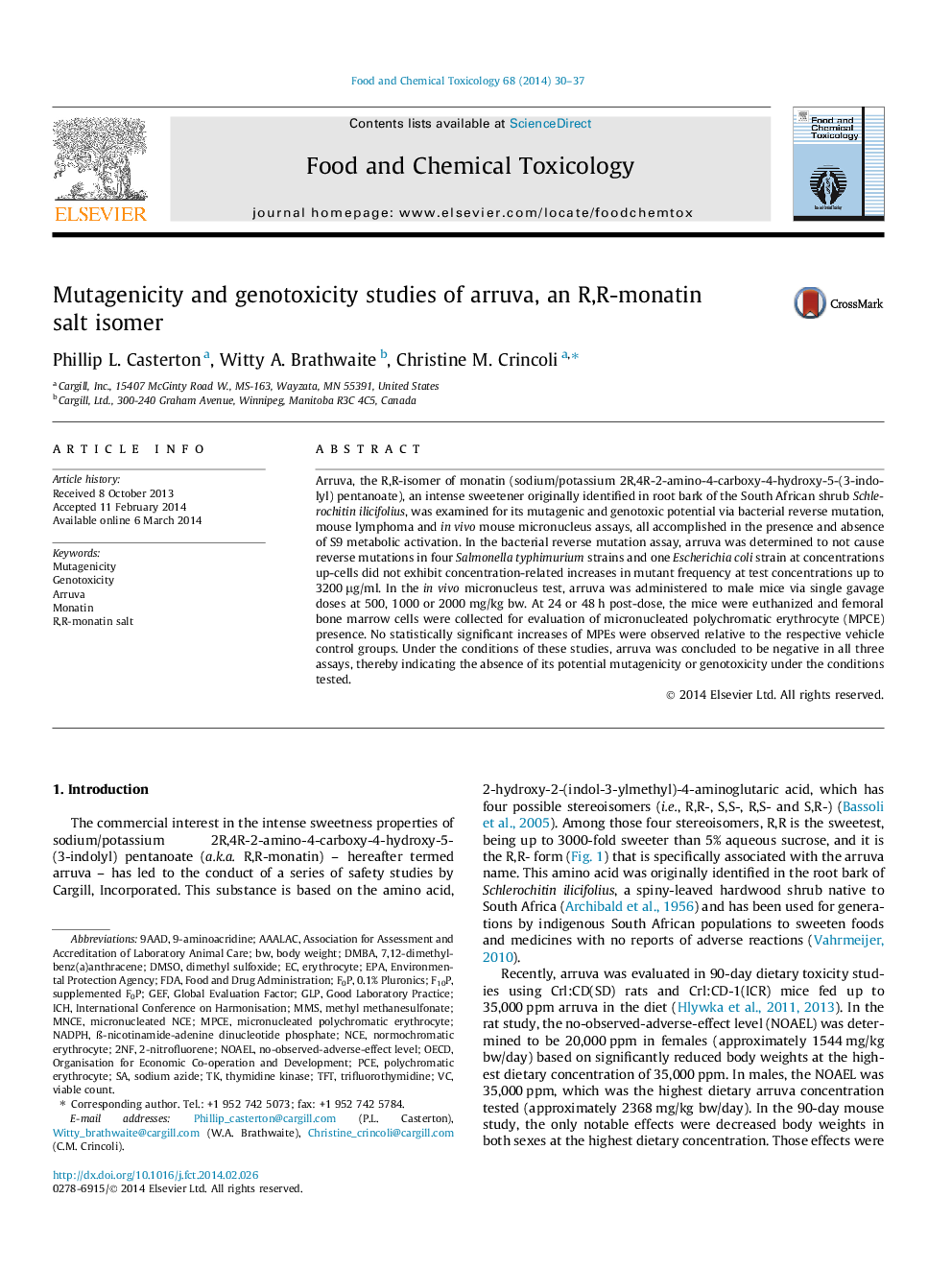| Article ID | Journal | Published Year | Pages | File Type |
|---|---|---|---|---|
| 5850492 | Food and Chemical Toxicology | 2014 | 8 Pages |
â¢Arruva; i.e., the R,R-isomer of monatin, did not cause bacterial reverse mutations in an Ames assay.â¢Arruva did not induce mutations in a mouse lymphoma assay.â¢Arruva did not increase the incidence of micronucleated polychromatic erythrocytes in an in vivo mouse micronucleus assay.â¢Arruva did not exhibit potential in vitro or in vivo mutagenicity and genotoxicity under the tested conditions.
Arruva, the R,R-isomer of monatin (sodium/potassium 2R,4R-2-amino-4-carboxy-4-hydroxy-5-(3-indolyl) pentanoate), an intense sweetener originally identified in root bark of the South African shrub Schlerochitin ilicifolius, was examined for its mutagenic and genotoxic potential via bacterial reverse mutation, mouse lymphoma and in vivo mouse micronucleus assays, all accomplished in the presence and absence of S9 metabolic activation. In the bacterial reverse mutation assay, arruva was determined to not cause reverse mutations in four Salmonella typhimurium strains and one Escherichia coli strain at concentrations up-cells did not exhibit concentration-related increases in mutant frequency at test concentrations up to 3200 μg/ml. In the in vivo micronucleus test, arruva was administered to male mice via single gavage doses at 500, 1000 or 2000 mg/kg bw. At 24 or 48 h post-dose, the mice were euthanized and femoral bone marrow cells were collected for evaluation of micronucleated polychromatic erythrocyte (MPCE) presence. No statistically significant increases of MPEs were observed relative to the respective vehicle control groups. Under the conditions of these studies, arruva was concluded to be negative in all three assays, thereby indicating the absence of its potential mutagenicity or genotoxicity under the conditions tested.
